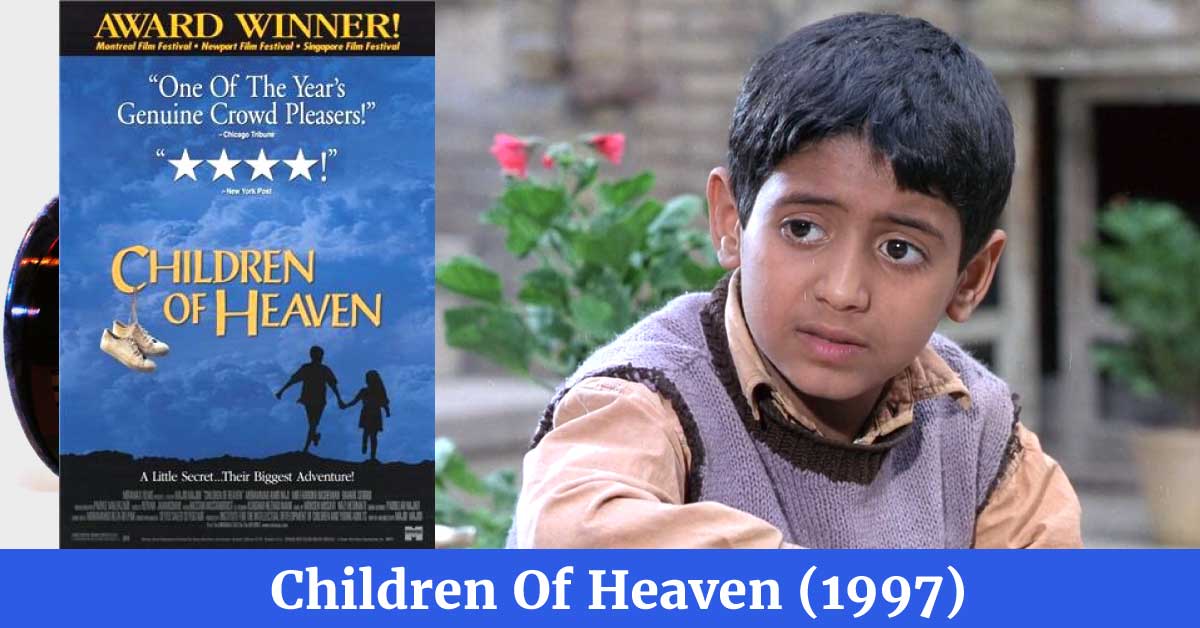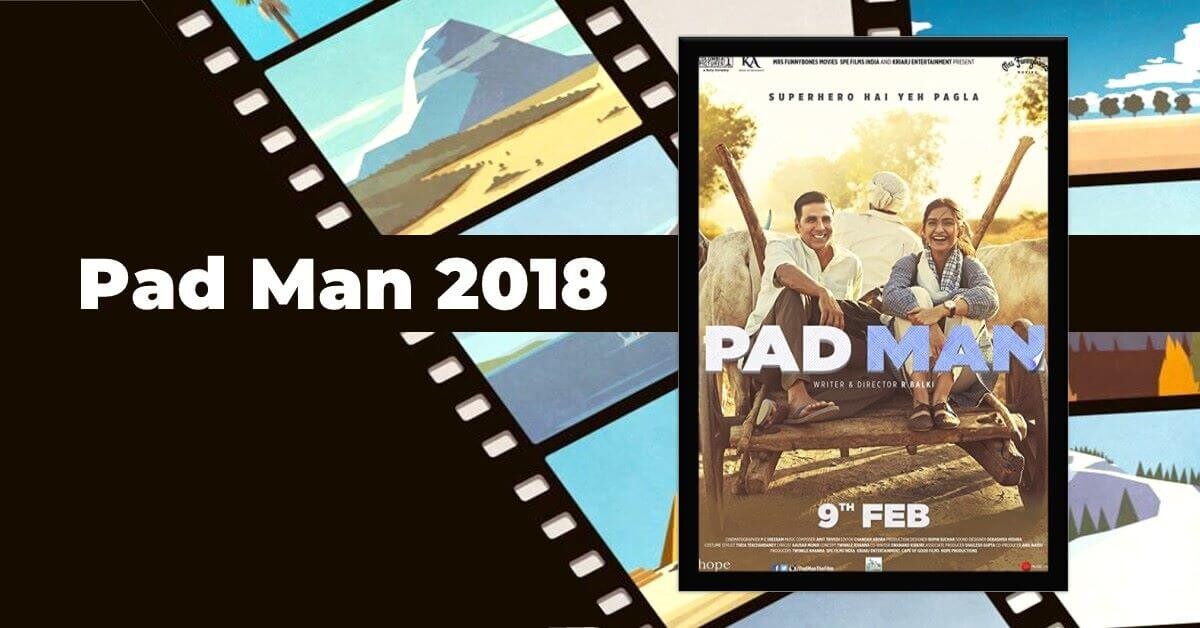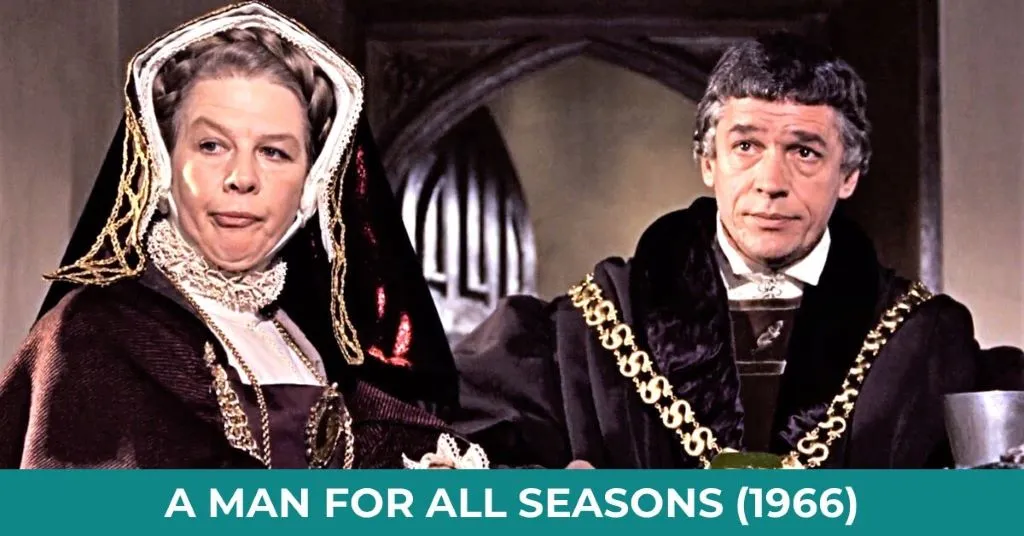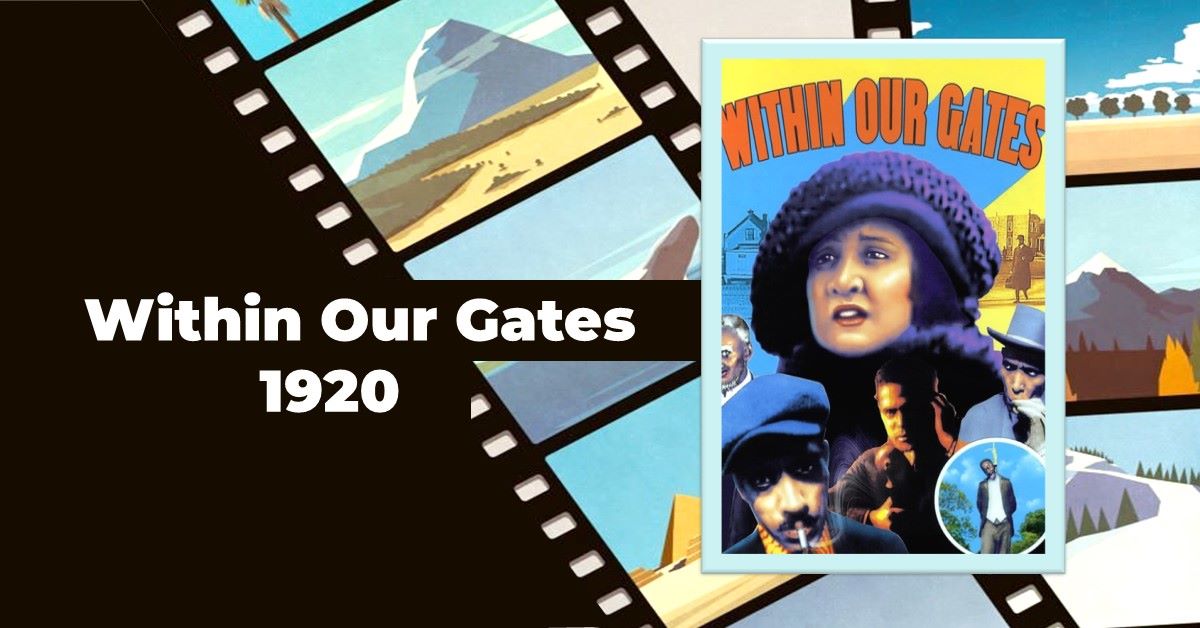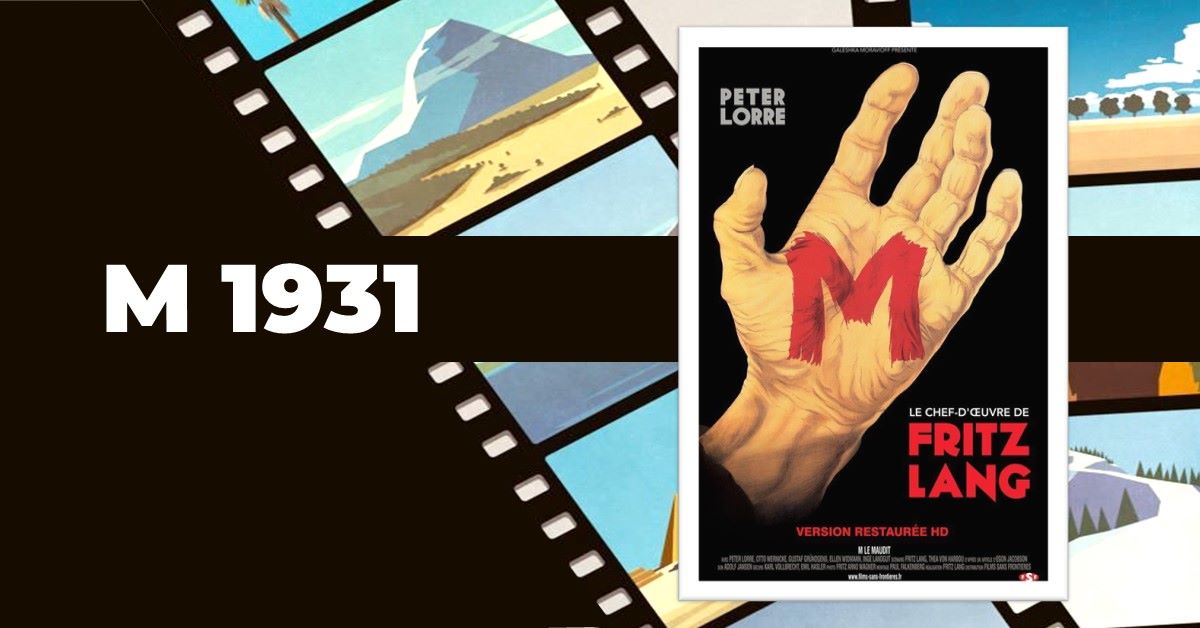Last updated on November 20th, 2023 at 10:54 am
Children Of Heaven (1997) is an Iranian film based on the story of a nine-year-old boy, Ali, and his sister, Zahra, who had to share the same pair of shoes to go to their school. It amazingly portrays the struggle of a poverty-stricken family in the heart of Tehran where stood the first high-rise building, Hotel Burj-e-Sefid. Just how important a pair of shoes can be, has been defined in the film.
The film, like The Bicycle Thieves (1948) reflects on the fact that the colour and struggle of poverty are the same for every poverty-stricken people. Yet, it’s still the poor people who care and hold on to the morality and the principle of honest living and teaching to the generations.
Acted by Amir Naji M. Hashemian, B. Sadiahi, N. Mohammadi F. Sarabandi, K. Mirkarimi, B. Rafii, Children Of Heaven (1997) is one of the 101 best films of 100 years on my watch list.
Storyline: Children of Heaven
A nine-year-old boy Ali took his sister’s pink pair of shoes to a cobbler to mend. The cobbler put the pair of shoes in a black polythene bag. Ali went to a vegetable store to buy potatoes after he had bought Barbari-leavened bread. In the vegetable store, Ali hid the shoes in between the vegetable cases while he was picking potatoes in the polythene he was holding.
A street trolley vendor who sells things in bartering appeared in front of the store pushing his cart, and with permission from the owner, he collected the waste as usual. He picked up the packet of the shoes Ali hid there, thinking it’s a waste as well. The elderly vendor left the place before Ali realised that his sister’s shoes were missing. He began searching them frantically and had to have a chase by the owner as he spilt the vegetable cases.
Broken heart, through the blind alleys of the town, Ali ran home with his staff. At home, he heard the argument between his ill mother and the landlord over the due rent for five months. Ali quietly entered the home and gave the potatoes to his sister Zahra to peel. While Zahra wanted to see her repaired shoes, Ali said the shoes were not home. With teary eyes, he said the shoes disappeared from the store and could find them.
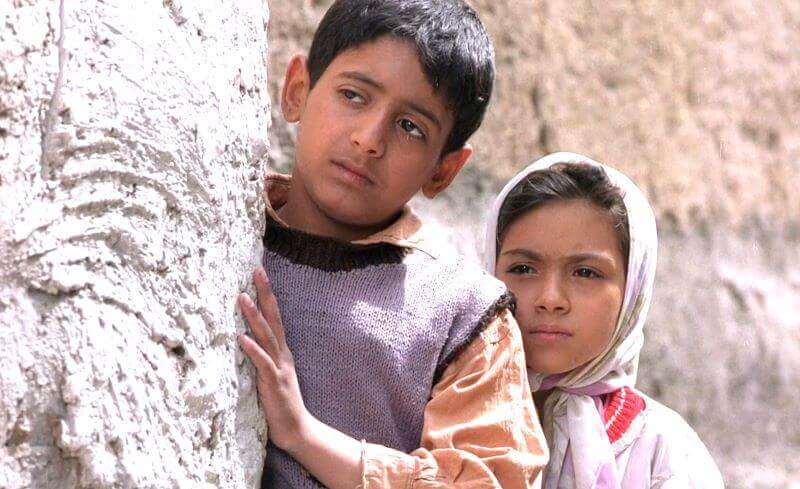
Tearfully he implored his sister not to tell anything about the shoes to their mother or father. Zahra cried and wanted to know how would she go to school. Ali promised her to find her shoe out. He ran to the store again to search for the shoes but got chased again. Ali returned disappointed.
At night, while they were studying, Zahra wrote a note in her notebook to ask how would she go to school the next day without shoes. She passed the notebook to Ali and waited for an answer. Ali replied that she can wear her slippers to school. Zahra did not agree with his suggestion because the school did not allow the students to wear slippers, and Ali was frightened when she told him that she was going to talk about the shoes to their father.
Ali passed the note saying that if she talked about the lost shoes, he would beat both of them up because he did not have any money to buy her another pair of shoes; their parents were already fiercely talking about scarcity in the family. Ali proposed to her that she can rather wear his sneakers to school and he can use them to his school as she got back. He presents her with a new pencil to convince her. They both agreed to keep the matter from their parents’ knowledge. Zahra agreed to follow Ali’s instructions regarding the matter.
From the next day on, they began to share the same pair of snickers interchangeably. They kept repeating the same routine regularly: he would wait for Zahra in the alley and run to school when she returned after changing the shoes. Zahra would have to run to catch Ali waiting in the middle of the alley, and he would have to run to school every day to catch his classes. And every day he would reach school late, which the headmaster of the school noticed.
Because of his late arrival at school, the authorities decided to send him back from school but was saved because of his class teacher’s intervention. The other day, when Zahra was running home from school to catch her brother waiting in the alley, one of the snickers came off her feet and fell into the gutter.
It was being carried away with the stream. She ran after the shoe following the stream by the fringe of the gutter. She wept sitting when it stuck under a sewerage lid. Then a shopkeeper came to help her retrieve the shoe.
Every day Zahra would check the other students’ feet to look for her lost shoes. Utterly shocked, one day she noticed her shoe on her feet. She followed her all the way to her residence. The next day, along with Ali, they investigated the girl, they noticed that she was a daughter of a blind man whom she helped walk while he sold things from the case hung around his neck.
One day Ali washed his dirty snickers and let them dry on the wall. Zahra had woken Ali up that night to collect the shoes from outside because they were getting wet due to a downpour.
The next day Ali’s father’s friend gave him some gardening equipment. Carrying Ali and the gardening equipment on his bicycle, Mandegar began ploughing the city of Tehran hoping for gardening work.
However, after many tries, they got a job that paid them well beyond what Mandegar expected. With the money thought of buying a pair of shoes for Zahra. But, on their way home, Mandegar and Ali succumbed to an accident which left them injured minorly. The brake of the bicycle did not work.
A few days later Ali’s school declared that there will be a long-distance race for children, which will be organised in the province with six children from each school. Interested children were asked to register their names. Considering the state of his torn shoes, Ali did not enlist himself in the race. But he changed his mind when he came across the notice board pasted on the wall of the school.
The notice displays the prices to be awarded to the first three winners: First prize: Two weeks at a holiday camp and a set of sports suits. Second prize: Two weeks at a holiday camp and school supplies. Third prize: One week at a holiday camp `and a pair of sneakers.
Ali decided to register for the race, even though his physical training teacher said the deadline for registration was over. Ali cried to him and promised that would do better than others. After a test, he was enlisted.
That night Ali promised his sister that he enlisted for that race. He hoped that he would become third. Asked why he hoped to be third, but not first, he said that there was a prize of Snickers, and he can exchange them for a pair of girls’ shoes, while the first and the second have something else.
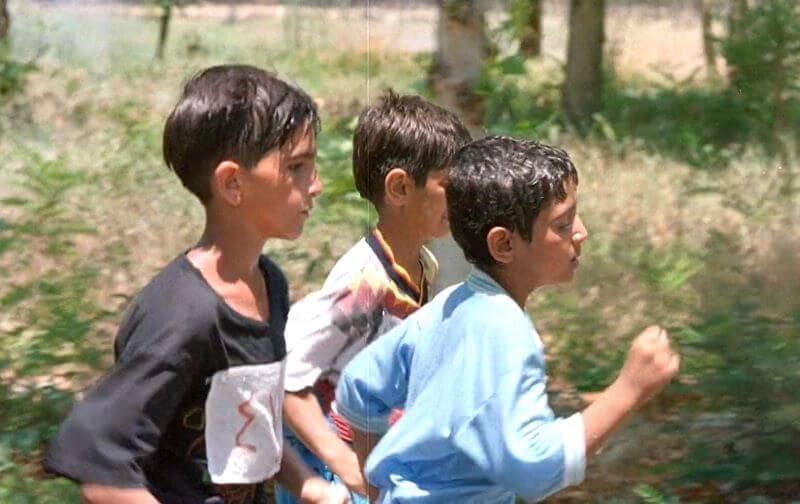
On the day of the race, thousands of boys from different schools joined the race of four miles. Ali saw how thousands of boys came with their parents and were wearing beautiful and new shoes for the race while he would have to race with his torn pair of sneakers. But the dream and force of having been awarded a pair of Snickers drove him to become the winner of the race.
When Ali finished the finishing line and fell flat on the ground, he asked his teacher if had come third. The teacher replied that not the third, but the first. Ali seemed unhappy. Timidly he approached Zahra at home in the evening. Head bowed he could not say anything to Zahra. On the same day, his father was seen carrying two pairs of shoes on his bicycle.
Things That Moved Me
Children Of Heaven (1997) was a big surprise for me as to the way Ali and Zahra behaved in a mature manner, considered way. The real and genuine sibling bond is presented to the world in Children of Heaven (1997). The way Zahra screened every pair of feet at her school in search of her lost shoes was exceptionally poignant. When she found the girl who was wearing her shoes and followed her to her residence, she found out that she needed the shoes more than she needed them. Ali and Zahra understood that well.
Ali and Zahra had nothing in their minds except the shoes. Only a pair of shoes changed their relationship and only a pair of shoes could have brought a smile on their faces. But they agreed to handle the situation by themselves without giving it to their parents who were solely concerned about their survival. They realised that the news of lost shoes would simply worsen the situation, and bring more familial disorder.
Since Ali lost her shoes, they were always on the run. Running was nothing new for them. Therefore, when Ali registered for a long-distance race, running in the torn shoes did not matter to him much. Even though he hoped to be third, he became eventually first, just because of his habitual running from home to school. The poverty and routine sharing of his shoes with Zahra opened up the opportunity to develop his running skill. Every disadvantage can be turned into a favourable advantage.
When Ali noticed Snickers for the third prize on the notice board, he simply ignored other prizes and decided to run for it. Because what he needed at the moment was just a pair of shoes to make his sister happy. In fact, he registered late for the race just in the hope of a pair of shoes. That’s why when he finished the race and fell to the ground, he asked his teacher if he had come third. Ali was not very happy that he had won the race. He cried that he would have to disappoint Zahra.
American author Dr Seuss said, “You have brains in your head. You have feet in your shoes. You can steer yourself in any direction you choose.” Ultimate struggle and dream of Ali were to make his sister happy with a pair of shoes, without their parents knowing. They knew poverty, and it feels.
Kudos to the director of Children of Heaven for making the film and acting lifelike. Every moment of Children of Heaven (1997) exerts a genuine sense of human simplicity and the beauty of life. Ali’s sympathetic attitude towards his sister Zahra, and her contemplative reflection on the surrounding circumstances have left me awestruck. But I was even more broken when Ali could not tell her about the shoes when she had disappointedly observed her misgiving had come true. Zahra was teary once again.
Yes, just as it is seen in the film, a little compassion, and a little sympathy for fellow human beings can make the world even a better place.
Conclusion
Children of Heaven (1997) is capable of making any viewer move. The beauty of life and living, the pristine beauty of Tehran, and the simplicity and tranquillity of the enriched cultural facet can make anyone love it.
